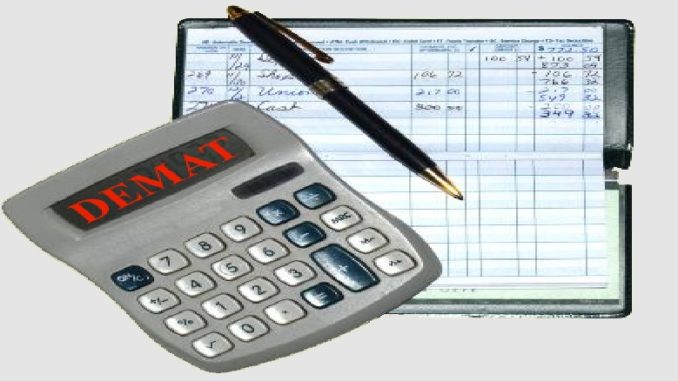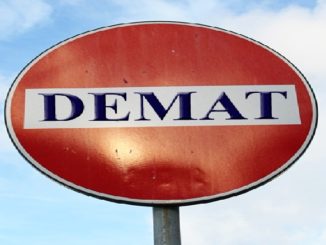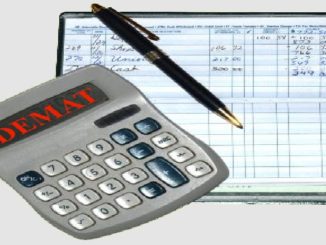
After depositing a cheque in the bank account, we normally check the account statement to ensure funds have been credited to the account. But how often do we check our demat account statement, to check whether the purchased shares have been credited to the demat account. Please read on to find out why you should be doing that.
First, let us look at the basics
Shares are kept in the dematerialized or electronic form in two depositories – National Securities Depository Limited (NSDL) and Central Depository Services Limited (CDSL). Depositories receive shares through Depository Participants (DP) and not directly from investors. DPs are registered with the Securities Exchange Board of India (SEBI) and acts as agents for depositories. To trade in shares, you need to have two accounts – a trading account with a share broker and a demat account with a DP.
You can have these two accounts with different entity, but it is advisable to keep trading and depository accounts with the same entity to avoid settlement issues. If depository account is with a different entity, for every sale transaction you need to submit Transfer Instruction For Delivery (TIFD) slip to your DP for transferring shares from your demat account to the brokers demat account for the purpose of settlement. Depositing TIFD timely is critical since if adequate number of shares are not delivered, exchange will auction your shares. Thus operationally it is much better if both the trading account and demat account are with the same entity.
Refer to below articles for further understanding about Demat account:
Why is it important to check Demat Statement regularly?
It is important to ensure that your broker transfers the purchased shares from the common pool account to your demat account post settlement and pay out. Normally it is assumed that once the payment for the shares purchased has been made, the shares would automatically be transferred to your demat account. In most of the cases this is true but it could be possible that the purchased shares are not transferred to the investors demat account in timely manner and kept by the broker in the common pool account and utilized for the purpose of margin requirement of other clients.
It’s like the bank not crediting the cheque proceeds to your account but keeping the same in their own account. Not having your shares in your demat account could have several implications. You are unnecessarily exposed to several risks. Your shares could be utilized by the broker for delivery obligation of another client, without you knowing about the same. This is like your broker lending your shares to a third party without your knowledge. Your broker could be utilizing your shares for his margin requirement with the exchange, then you are exposed to the risk of your shares getting sold by the exchange in case of extreme fall in the market and the broker being unable to furnish additional margin to the exchange in time. Another implication could be that you will not receive dividend and other corporate action benefits for the shares kept in the brokers common pool account. Instead your broker will get the same. So please ensure that the purchased shares are promptly transferred by your broker from the common pool account to your demat account.
While some of the DPs send the account holding statement on a periodic basis (quarterly or monthly), some of the DPs do not send the physical account holding statement. Investors can avail of online access to their demat account or subscribe to SMS based alerts to get automatic alert for any debit or credit of shares. Both CDSL and NSDL provide both online internet access and SMS based alerts facility. Important links for SMS alerts and online access facility are given below.


I am a client with Geogit and Motilal Oswal for my share business.Can I download my holdings self?
It will depend on whether you have online trading account where you trade yourself or offline trading account where you call up broker to place your trades. Most of the online trading portals will have details of demat holding available when you login. Even for offline accounts, Motilal does have online back office portal where you can login and download various documents such as contract notes, demat account statements, etc. You may check with your broker regarding the same.
How to reach holding statements of my d p.
How to see holding statement I am registered with you
approximate 25 days ago i have given my documents to open demat account in the office of jagat trade center and Rs. 4000 has been deducted from my account also.But account has not been opemn till now. So, please help me.
Regards,
NANDAN KUMAR
MOB-9334768465.
Required Holding Statement of Shares/Demate Account